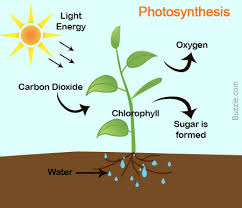Photosynthesis, the ability to convert sunlight into energy, has always been known as the trademark for plants. With the treat of climate change and a shift away from fossil fuel energy, this often overlooked ability seem to be a perfect solution.
A group of researchers at UCLA has beaten plants at its own game of photosynthesis. They developed an artificial photosynthesis system that is more efficient that its nature counterpart. Photosynthesis is the simple process of using sunlight energy to convert carbon dioxide (CO2) and water into chemical energy. In nature, the process of photosynthesis is not very efficient as it only convert approximately 1% of solar energy into usable chemical energy. The research utilized a hybrid system which was reported to be 10 times more efficient than plants.
Plants’ photosynthesis efficiency is mainly limited by the light absorbing pigments. However, solar panels that absorbs light much better has already been invented. The researchers designed a nano-wire coated with bacteria which collects sunlight similar to a solar panel and allows the bacteria to use the energy to convert carbon dioxide and water into liquid fuel. The difficulty of previous attempts at imitating photosynthesis is the deaths of bacteria responsible for the conversion of light into chemical energy caused by a bacteria killing oxygen by-product. They developed a new catalyst to kick start the chemical reactions by the bacteria without killing them.
There is a video explaining the nano-wire research below:

This new system is estimated to be able to recycle carbon dioxide in 85,000 liters of air into fuel. The research also found by using a different bacteria, nitrogen gas can be converted into ammonia, a common ingredient in fertilizers. This research can change our approach on how to solve the energy crisis due to climate change.
Who could have known that such little plants could hold the key to solve such a big problem?
Written By: Harvey Wu


2 responses to “Beating Plants at Its Own Game”